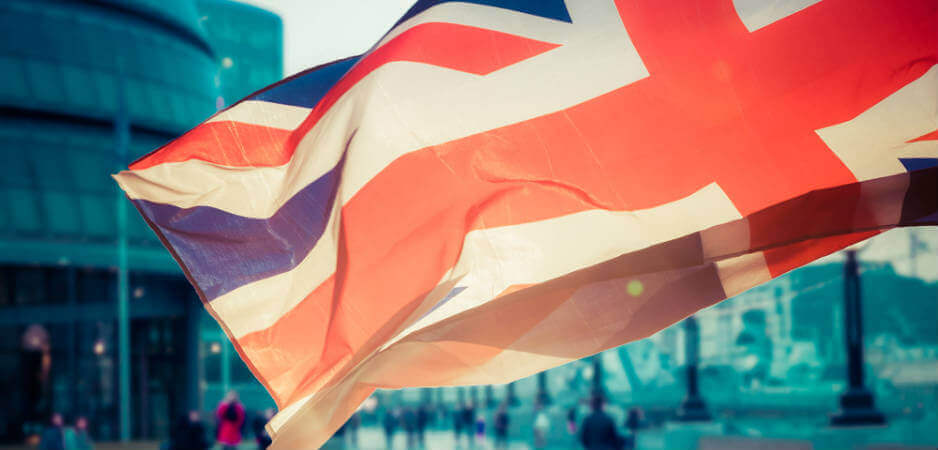It is impossible to understand the Brexit vote and the political culture that has emerged in its wake without appreciating Britain’s lurch to the right.
Earlier this year, an intriguing lens was cast on the nature of radical and far-right ideas in post-Brexit Britain. At the center was a graphic tweeted by Leave.EU — the radical unofficial pro-Brexit group spearheaded by Nigel Farage and funded by Aaron Banks in the 2016 European Union referendum. The graphic blared the title “Londonistan” above a picture of London’s Muslim mayor, Sadiq Khan, with the caption: “423 New Mosques, 500 Closed Churches, 100 Sharia Courts.”
The blatantly Islamophobic and factually baseless tweet (which clearly has nothing to do with the group’s raison d’etre of leaving the European Union), according to BBC Reality Check was “based on out-of-context sources and, importantly, give no sense of time span.” It came just days after Leave.EU sought to exploit the anti-Semitism row that has engulfed the Labour Party with another controversial message, stating that Labour’s failure to deal with anti-Semitism was due to it being “reliant on the votes of Britain’s exploding Muslim population.”
Leave.EU has come under increasing criticism by many for its output on social media, including Labour MP Wes Streeting (a Remainer) who commented that the Sadiq Khan tweet was “out and out racist politics” and that the group is “now a far-right organisation trying to stir up hatred and division between different communities.” Streeting is essentially correct. The group, which set out to campaign for Britain’s withdrawal from the EU, has morphed into a typical far-right organization regularly exhibiting anti-Muslim prejudice and xenophobia.
Of more interest, however, is that prominent Brexiteers criticized the recent actions of Leave.EU. Radio DJ Julia Hartley Brewer tweeted: “Dear @LeaveEUOfficial your tweets are doing a terrible disservice to Brexit voters. Your tweets are often crude, divisive and nasty. I don’t know what you’re trying to achieve but I’m pretty sure the British people don’t want it. Please stop.” Prominent political blogger Guido Fawkes similarly argued that Leave.EU was “once again hurting [the] Brexit cause” and that “Leave.EU were not the official Leave campaign — they are, to coin a phrase, a fringe group who do not represent mainstream Brexiters.”
This is part of a wider attempt by Leavers to claim that Britain’s vote to withdraw from the European Union was nothing to do with bigotry or the growing appeal of far-right ideas in Britain — a key argument made in my 2017 book, English Uprising: Brexit and the Mainstreaming of the Far Right. Rather, as the likes of Foreign Secretary Boris Johnson and other Vote Leave — the official pro-Brexit group — dignitaries such as Michael Gove and Douglas Carswell have argued, Brexit was driven by voters wishing to engage more with an increasingly global and cosmopolitan world. In the words of Carswell, the vote to Leave was “not an angry nativist xenophobic vote” but “won precisely because it was an argument about Britain being open, internationalist, generous, and globalist.”
This is to almost wilfully misremember the EU referendum campaign. The Vote Leave, whilst more subtly than Leave.EU, utilized the tactics of Islamophobia, xenophobia and wilful distortion of facts all present within Leave.EU’s recent tweet. Posters claiming that Turkey’s accession to the EU was imminent and “Britain’s new border is with Syria and Iraq,” as well as their exploitation of the refugee crisis similarly sought to tap into the same fears used by the far right.
The Leave vote in 2016 was decades in the making and indicative of a growing skepticism toward immigration and multiculturalism that had been on the rise since at least the turn of the 21st century. There had been unprecedented support for the neo-fascist British National Party between 2002 and 2010, while the rise of the less extreme but anti-immigrant UK Independence Party (UKIP) reached its apogee in 2014 when it came first in the UK’s European Parliament elections.
The decision to hold the referendum was motivated by then-Prime Minister David Cameron’s desire to appease hard-right backbenchers and win back Euroskeptic Conservative voters who had abandoned the party for UKIP. Opinion polls consistently placed immigration at the top of the list of issues facing the country, while just a week before the vote in June 2016, immigration overtook the economy to become the most important issue motivating would-be Brexit voters. In short, it is impossible to understand the Brexit vote and the political culture that has emerged in its wake without appreciating Britain’s lurch to the right.
There has been substantial debate since the referendum as to what Brexit actually means and represents. One of the less helpful analyses came from Prime Minister Theresa May when she proclaimed that “Brexit means Brexit.” But aside from the fevered discussions over Britain’s future trade and legal relationship with the European Union, which have overshadowed nearly all political debate since the referendum, what is abundantly clear from the data is that the British public voted Leave in order to achieve aims that have, for decades, been advocated by the radical right. Since the referendum, those involved in the Leave campaign have sought to deny or minimize the link and now appear to be distancing themselves from the more radical elements of the campaign to leave the EU.
*[The Centre for Analysis of the Radical Right is a partner institution of Fair Observer.]
The views expressed in this article are the author’s own and do not necessarily reflect Fair Observer’s editorial policy.
Photo Credit: melis / Shutterstock.com
Support Fair Observer
We rely on your support for our independence, diversity and quality.
For more than 10 years, Fair Observer has been free, fair and independent. No billionaire owns us, no advertisers control us. We are a reader-supported nonprofit. Unlike many other publications, we keep our content free for readers regardless of where they live or whether they can afford to pay. We have no paywalls and no ads.
In the post-truth era of fake news, echo chambers and filter bubbles, we publish a plurality of perspectives from around the world. Anyone can publish with us, but everyone goes through a rigorous editorial process. So, you get fact-checked, well-reasoned content instead of noise.
We publish 2,500+ voices from 90+ countries. We also conduct education and training programs
on subjects ranging from digital media and journalism to writing and critical thinking. This
doesn’t come cheap. Servers, editors, trainers and web developers cost
money.
Please consider supporting us on a regular basis as a recurring donor or a
sustaining member.
Will you support FO’s journalism?
We rely on your support for our independence, diversity and quality.






